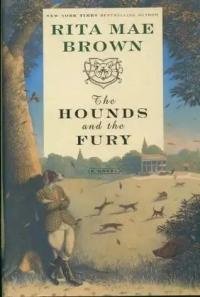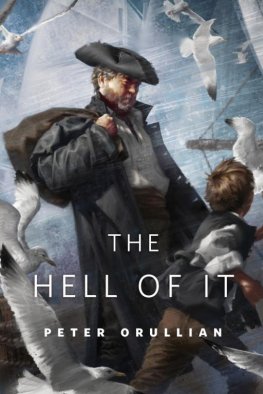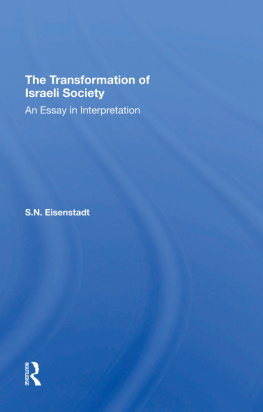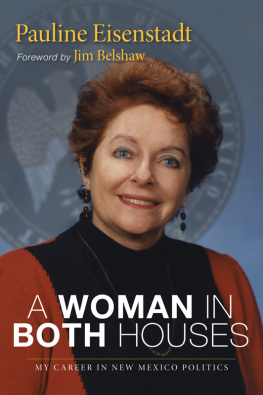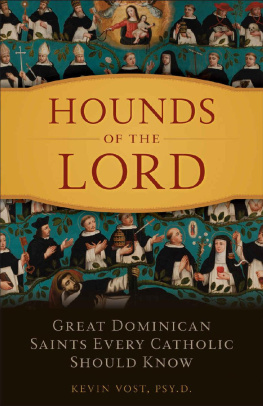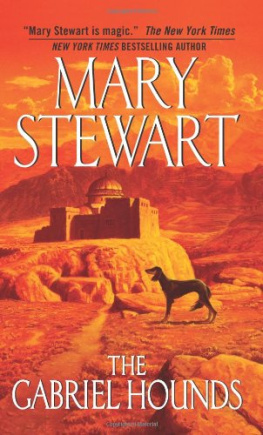University of Virginia Press
2021 by the Rector and Visitors of the University of Virginia
All rights reserved
Printed in the United States of America on acid-free paper
First published 2021
1 3 5 7 9 8 6 4 2
Library of Congress Cataloging-in-Publication Data
Names: Eisenstadt, Peter R., author.
Title: Against the hounds of hell : a life of Howard Thurman / Peter Eisenstadt.
Description: Charlottesville : University of Virginia Press, 2021. | Series: The American South series | Includes bibliographical references and index.
Identifiers: LCCN 2020037902 (print) | LCCN 2020037903 (ebook) | ISBN 9780813944524 (hardcover) | ISBN 9780813944531 (ebook)
Subjects: LCSH : Thurman, Howard, 18991981. | BaptistsUnited StatesBiography. | African American BaptistsBiography. | TheologiansUnited StatesBiography. | African American theologiansBiography. | EducatorsUnited StatesBiography. | African American educatorsBiography.
Classification: LCC BX6495.T53 E39 2021 (print) | LCC BX6495.T53 (ebook) | DDC 280/.4092 [B]dc23
LC record available at https://lccn.loc.gov/2020037902
LC ebook record available at https://lccn.loc.gov/2020037903
Cover photo: Rev. Dr. Howard Thurman. (Stuart A. Rose Manuscript, Archives & Rare Book Library, Emory University)
The beginning of my personal and professional odyssey with Howard Thurman began on Thanksgiving Day 1995, with a drive from Brooklyn to Rochester with my wife, Jane, and my late brother, Freddy. For the past quarter century, with a few extended breaks, I have been trying to take the measure of this extraordinary man. What began as a job has become a calling and a mission, my track to the waters edge.
This book reflects many years of work with the Howard Thurman Papers Project and its documentary edition, The Papers of Howard Washington Thurman. I have followed its wanderings from Colgate Rochester Crozer Divinity School, to Morehouse College, to Boston University. To say that this book would not have been possible without the opportunity the Thurman Papers Project gave me to immerse myself in his life and works barely requires stating. However, this book is not an official product or publication of the Thurman Papers Project, and let me emphasize and underline the standard disclaimer: all opinions, mistakes, misjudgments, and errors of commission or omission are entirely my own. From the beginning of my work with Howard Thurman, my friend on this journey has been the Rev. Dr. Walter E. Fluker, the projects only begetter, director, and muse. This book would have been impossible without his unstinting support. Walter knew Thurman well, and his affection, passion, and deep intellectual seriousness about Thurman has always been my inspiration. Above all, I have tried to stay in the light.
I have worked with many people on the Thurman Papers Project over the decades, unfortunately, far too many to call them all out individually. A few deserve special mention as friends and colleagues: Quinton Dixie, my Visions of a Better World coauthor; Kai Jackson Issa; Silvia P. Glick; and Jamison Collier. This book is built on our many years of fruitful work together. In the years I have been working on Howard Thurman I have made the transition, much to my surprise, from Brooklynite to upstate New Yorker to Carolinian. The first sweltering summer day I ever stepped onto the campus of Clemson University, wondering what it would be like to live in a place as exotic to me as South Carolina, Vernon Burton was there to greet me. Vernon, a peerless and courageous historian of the South, has provided boundless encouragement, intellectual stimulation, close readings, and practical assistance in the birthing of this book. He and his wife, Georganne, have become two of our closest friends. Vernon is one of our greatest Lincoln scholars, and he has engaged me in his life quest to fulfill Lincolns unfinished work. I see this book as part of our shared journey.
Thurman wrote of the need of an intimate circle of a close fellowship to provide the other-than-self reference needed to sustain oneself. Rob Snyder, Daniel Soyer, Marc Korpus (who also is the books superb cartographer), Julie Miller, Cathy Harris, Ayala Emmett, Maggie Kearney, and Alison Parker are all members of my fellowship. I have also learned much from other Thurmanites on this sojourn, among them Rev. Luther Smith, the dean of Thurman scholars, the Rev. Paul Smith, Kipton Jensen, and Rabbi Or N. Rose. Ryan Hendrickson and Sean Noel of the Howard Gotlieb Archival Research Center of Boston University have been unstintingly helpful. I would like to extend my thanks to Thurmans grandchildren, Anton Wong and Suzanne Chiarenza, for their support. I remember with great fondness the illuminating conversations I was privileged to have with Thurmans daughter, Olive Thurman Wong, and with Thurmans student Reb Zalman Schachter-Shalomi, both of blessed memory.
Let me thank Martin Doblmeier of Journey Films for his support and Clemson University provost Bob Jones for financial assistance in completing this work. Dick Holway, Helen Chandler, and the staff of the University of Virginia Press worked heroically during the pandemic to produce this book. Bea Burton was an indexer nonpareil. Susan Murrays Argus-eyed copyediting greatly improved the book, and let me give a special shout-out to Nadine Zimmerli for her superb editorial skills, and the exacting though nurturing ministrations she delivered to my slack and meandering prose. I would also like to thank Paul Harvey for his response to an earlier draft of this manuscript. A special thanks to the eminent scholars who consented to review the manuscript that became this book: Walter Fluker, Luther E. Smith, Edward Kaplan, and Vernon Burton.
Three dedicatees. Aaron Braveman, a dear friend and a pillar of Rochesters Jewish community, accomplished much in his long and useful life. For me, his outspoken quest for a true peace between Israel and Palestine was an enduring inspiration. Another Rochesterian, Harold Weschler, was a rare gentleman, a singular scholar, a mensch among mensches, a baseball fanatic extraordinaire, a boy of summer, and a great source of intellectual and moral support. The foul ball I caught sitting next to him is always on my desk. As Harold liked to say, the world is reborn every year when pitchers and catchers report. Without Harold, and after a strange spring without baseball, the world has a heavier heart. I always root for my home team. In every inning, Jane DeLuca, bella figlia dellamore, has been batting for me. This book, like my life, is hers. And, as Jane would insist, dont forget to mention the cats.




